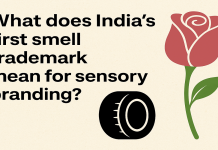This article is written by Ankita Pal, pursuing Diploma in Intellectual Property: Prosecution, licensing and litigation ( June-01-2023 ) and has been edited by Oishika Banerji (Team Lawsikho).
This article has been published by Sneha Mahawar.
Table of Contents
Introduction
Amul is a brand name across India and all over the world. It comes from the first letters of Kaira’s earlier name (Anand Milk Union Limited). The Kaira District Cooperative Milk Producers Union Limited, is the registered proprietor of the Trademark “Amul”. To know about “Amul Trademark Row” we must first understand what a trademark is all about. As per Section 2 (1) (zb) of Trade Marks Act, 1999, trademark is a mark capable of being represented graphically and which is capable of distinguishing the goods or services of one person from those of others and may include shape of goods, their packaging and combination of colours. This article discusses the Calcutta High Court decision in Kaira District Cooperative Milk Producers Union Limited vs Maa Tara Trading Co and Others (2021), where Maa Tara Trading Co (defendant), had allegedly infringed the registered trademark of Kaira’s by offering candles under the mark “Amul” and also committed the torts of passing off. It not only usurped the well known trademark of “Amul” but also adopted a similar writing style as that of the registered trademark.
Facts of the case
Sometime in the month of February 2020, the plaintiff who is the registered proprietor of the Trademark ‘AMUL’, came to know that candles under the mark ‘AMUL’ were offered on a complimentary basis with purchase of cake at a famous cake shop at Kolkata. Subsequently, the plaintiff located the shop and obtained a larger pack of candles bearing the mark of ‘AMUL’. The plaintiff was unaware of the association of the other party with the brand name ‘AMUL’ therefore the plaintiff had called upon the other party to provide details with respect to their association.
The defendant knowingly, fraudulently and deliberately adopted the well known trade mark including a deceptively similar writing style only to take undue advantage of the reputed brand name by making undue profits. Therefore the plaintiff filed a suit for perpetual injunction restraining the defendant for infringement of trademark and passing off. Nobody appeared from the defendant’s side. They had not even filed a Written Statement despite publication of notice on 20.06.2022 and 22.06.2022 in the English daily newspaper “The Statesman” and in Bengali daily newspaper “Bartaman”.
Thereafter Counsel for the plaintiff prayed before the Court that the suit must be decreed invoking Order 8 Rule 10 of CPC. For invoking the provisions under Order 8 Rule 10 of CPC, the Court must consider the veracity in the plaint. Based on the documents placed by the plaintiff before the Court, it is a clear case of infringement of trademark which is dealt with in Section 29 of Trademark Act 1999.
In the present case, it clearly shows a similarity in the mark of the parties. The Court is of the view that the defendant has infringed the registered trademark of the plaintiff under section 29 (4) (a) (b) (c). It applied the decisive test for checking deceptive similarity as laid down in Cadila Health Care Ltd vs Cadila Pharmaceuticals Ltd. The Court is of the view that such usage by the defendant would lead to loss of revenue as also that of goodwill of the plaintiff. The suit is a commercial suit within the definition of Commercial Court. It was the clear intention of the legislature that these kinds of cases must be decided expeditiously and if the defendant fails to pursue the case, the Court should invoke the provisions of Order 8 Rule 10. Resultantly, defendant did not file Written statement and Court being satisfied by the averments made in the plaint supported by documents, it decreed the suit in plaintiff’s favour.
Loopholes in the Calcutta High Court’s decision
Court relied upon Section 29(4) of Trademark Act, 1999. It considered Section 29(4) (a) which relates to discerning a similarity between the impugned and registered trademark. Section 29(4) (b) requires the goods to be of non-similar nature, which is also satisfied. However the Court, rather than considering section 29 (4) (c ) which states that use of mark without due cause is detrimental to the distinctive character of the registered trademark, jumped to the term “passing off” to establish trade mark infringement. The court’s reliance on Cadila Healthcare Ltd vs Cadila Pharmaceuticals (2001), focuses on the context in which the mark has been used and does not pertain to its effect.
Three ingredients that are needed to establish passing off has been laid down in Reckitt & Colman Products Ltd vs Borden Inc (1990), namely, goodwill or reputation of the plaintiff’s goods, misrepresentation by defendant leading or likely to cause people to believe that goods are of plaintiff’s and plaintiff has suffered or is likely to suffer damage as a consequence. The court ended up using the test of passing off to evaluate trademark infringement whereas both were separate claims. The Calcutta High Court faltered in applying, passing off and not considering or satisfying the provision laid down in Section 29 (4) (c) of the Act of 1999 for trademark infringement.
There is a difference between passing off and infringement. Claim for passing off is a common law remedy whereas in case of infringement it is a lawful remedy. To prove passing off, it is not only sufficient to show that the marks are deceptively similar but also the mark should cause confusion and mislead consumers. Whereas to prove infringement, the mark must be same or deceptively similar to the certified mark.
Precedents delivered on similar grounds : an insight
- In Hamdard National Foundation India vs Sadar Laboratories (2022), the Delhi High Court restrained Sadar Laboratories from manufacturing and selling beverages under the trademark named ‘Dil Afza’ as it has a phonetic similarity with ‘Rooh Afza’. The Court observed that the trademark ‘Rooh Afza’ is prima facie a strong mark requiring a high degree of protection as it has acquired immense goodwill.
- In Lacoste S.A vs Suresh Kumar Sharma (2020), Lacoste S.A had appealed for a permanent injunction against Suresh Kumar Sharma in Delhi District Court. Suresh Kumar Sharma was selling shirts carrying the brand name “Lacoste”, violating and passing off the trademark. Court was of the view that Suresh Kumar Sharma had no right to use the label ‘Lacoste’ and that his actions contributed to enrichment in the general public. Therefore the Court ordered a permanent injunction to prohibit Suresh Kumar Sharma from using the name ‘Lacoste’.
Grounds for trademark infringement
- One of the grounds of trademark infringement is the “detrimental” impact of the impugned mark on the reputation or distinctiveness of the trademark. In this case, the Court has concluded the speculative harm to AMUL’s reputation. It did not evaluate the position of defendants in their domain and their products.
- Section 29 (4) provides for “unfair advantage” as another ground for trademark infringement. In L’Oreal vs Bellure (2009), the court of law had construed unfair advantage as free-riding which means that junior is unduly benefitting from goodwill and investment of senior’s brand. There has to be a direct advantage being reaped rather than a mere possibility. As per Raymond Ltd vs Raymond Pharmaceuticals (2016), the gain must be substantial. In the Amul trademark case, the usage of the trademark ‘AMUL’ would largely be immaterial considering the distribution by the manufacturers. As opposed to passing off, Section 29 (4) states that there must be direct and substantial harm to the goodwill of the trademark or undue benefit gained by a junior of that degree.
- The concept of Section 29(4) has been structured in a manner to preserve trademark infringement and there must not be application of passing off. Considering Section 10(3) of Trade Marks Act, 1999, one needs to show that there has been unavoidable compulsion of usage to invoke “due cause”. As per Nestle India Limited vs Mood Hospitality (2010), the court stipulated that there must be an explanation for usage of the trademark.
Conclusion
Court failed to apply Section 29 of the Trademarks Act 1999, robustly, by glossing over sub-clause (c). Court considered passing off as enough to constitute a case for trademark infringement. Therefore to call it a case of trademark infringement, without applying all the elements, has an unjustified impact on the competition which is something that courts need to be cautioned about.
Students of Lawsikho courses regularly produce writing assignments and work on practical exercises as a part of their coursework and develop themselves in real-life practical skills.
LawSikho has created a telegram group for exchanging legal knowledge, referrals, and various opportunities. You can click on this link and join:
Follow us on Instagram and subscribe to our YouTube channel for more amazing legal content.
 Serato DJ Crack 2025Serato DJ PRO Crack
Serato DJ Crack 2025Serato DJ PRO Crack












 Allow notifications
Allow notifications


